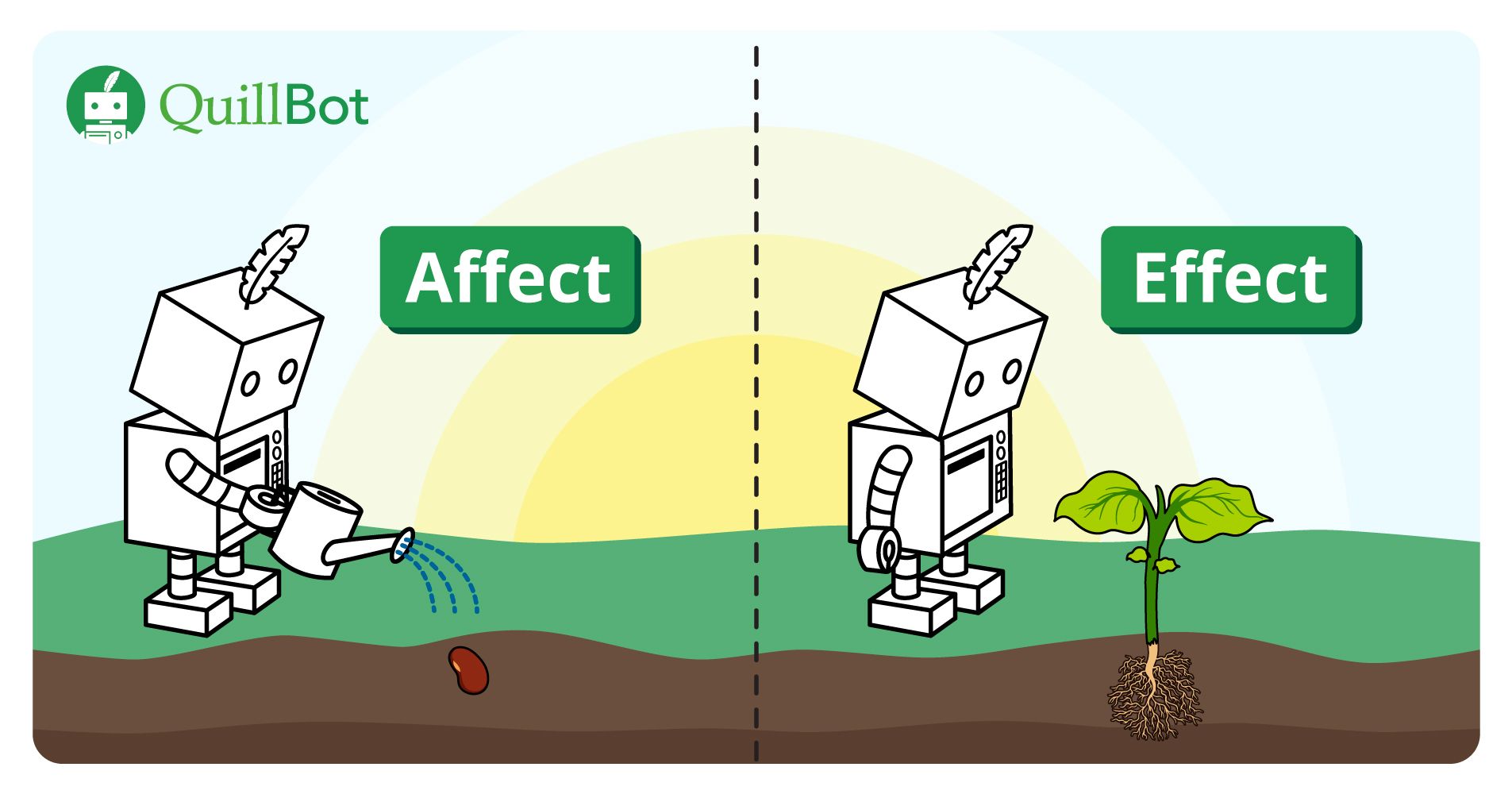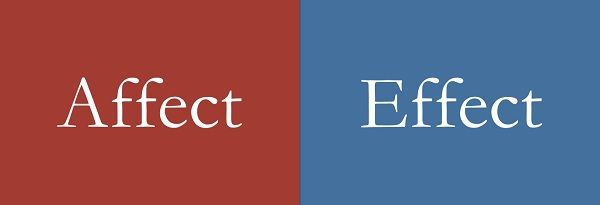


When affect is used as a noun, it is related to the field of psychology and is a technical term. Fortunately, though, this is a rare occurrence. Where things get sticky, though, is that each of these words, affect and effect, have alter egos and switch their parts of speech. So far, all seems pretty simple, affect = action verb. The articles a, an, and the always announce that a noun is not far away.

A good hint that the word is a noun is that the article the appears immediately before it. In this example Lydia is wondering about the actual change to her grade as a result of doing the extra credit assignment. Lydia wanted to know what the effect to her grade would be from earning extra credit. The extra credit is changing (affecting) her grade.īy contrast, effect frequently appears as a noun. In this example, affect is functioning as a verb meaning to influence or to change. Lydia wanted to know how the extra credit she earned would affect her grade. Here are a few examples to help illustrate the concept: Affect is almost always used as an action verb meaning to influence or to change something, while effect usually appears as a noun and refers to the actual results of the change. So how does one decide which to use? There is a general rule that’s helpful to know. Depending upon context, each of these words can function as either a noun or a verb. Affect and effect are two words that confuse many people and for good reason. As such, they are easily confusable and often used incorrectly. Words that sound alike, called homophones ( homo = same, phone = sound), have different spellings and different meanings.


 0 kommentar(er)
0 kommentar(er)
